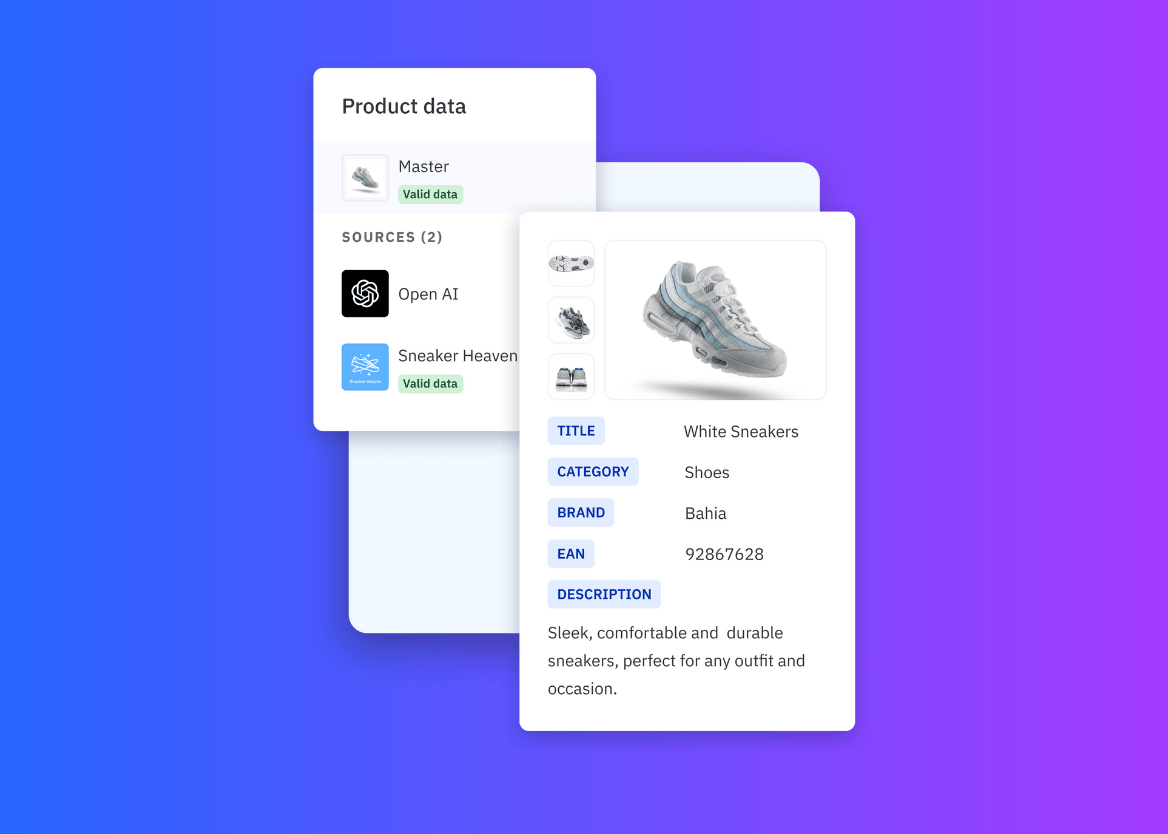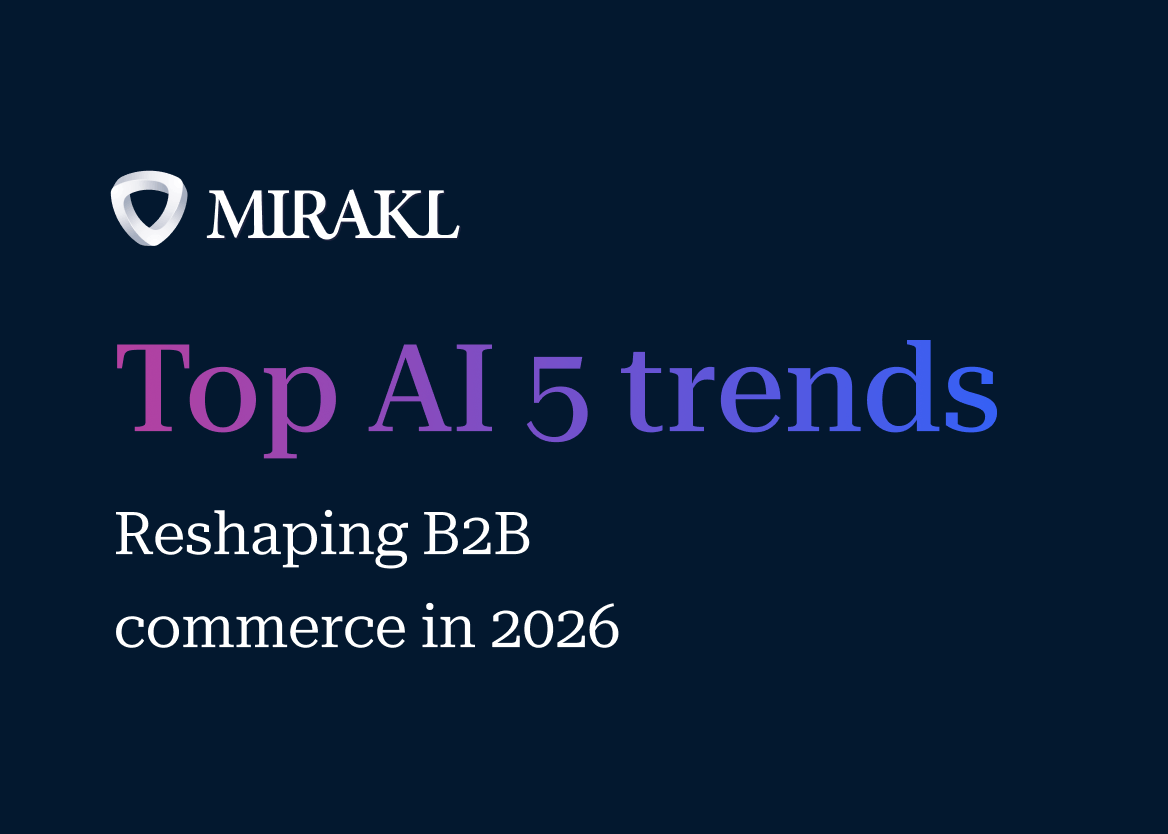Will B2B Marketplaces Enter the Metaverse? Mirakl Partners Offer 2022 Marketplace Predictions

The way B2B transactions are handled is evolving, with buyers and providers alike looking for an increasingly modern, digitally-driven solution. Navigating this changing landscape requires both the right technology and industry expertise. This is one of the reasons why, here at Mirakl, we’ve paired our best-in-breed marketplace SaaS platform with a dedicated ecosystem of technology and service partners - offering businesses the premier tools and talent they can rely on for sustained eCommerce excellence.
With 2022 upon us, we asked Mirakl partners SAP and Deloitte Digital to reflect on the current B2B marketplace landscape, and predict what changes are in store for the coming year. They saw an increased emphasis on customer relationships, a potential solution for ongoing supply chain disruptions, and even a gateway into the metaverse.
SAP: Online marketplaces will allow dealers and service operators to view inventory differently
Online marketplaces are opening up new opportunities for B2B businesses willing to embrace a changing reality.
The past two years have forced manufacturers to reconsider how they meet their customers. SAP saw an acceleration in the consumerization of the B2B customer experience in the industrial manufacturing space, reflected in both online order volume and in the extending and commissioning of new commerce sites. Manufacturers shrunk their timelines for standing up their commerce channels while field sales teams morphed into inside sales roles. Customers were not able to attend business events or meet directly with sellers further forcing a shift to digital-first interactions. With their new digital commerce sites now up and running, manufacturers are looking for ways to derive further value from their investments.
As the pandemic drags on, supply chain disruptions will continue to impact spare and wear parts availability. This makes moving trapped inventory throughout their channel partner networks to where it is needed by end customers a critical challenge and one which could be addressed by a commerce marketplace. Dealers and service operators may have excess stock they could offer up to customers outside of their own territories. While marketplaces are often thought of as a method for increasing assortment without increasing fulfillment network costs, marketplaces are also increasing the size of the fulfillment network itself for commonly needed yet hard-to-source parts.
Loading...
Deloitte Digital: Marketplaces poised to play an evolving role in eCommerce acceleration
As eCommerce sales continue to swell, online marketplaces offer an agile foundation for businesses to build upon.
We could not have predicted that the pandemic would last this long. But one thing we can predict, based on customer behavior over the last two years, is that online commerce will play an even greater role going forward.
To serve this need, online businesses must provide more product options to customers, personalize these offerings, provide seamless integration with their sellers, and make customer service a top priority. Sellers will need to get more selective when picking marketplaces to participate in as there will be greater consolidation of seller reputation and rating across marketplaces. Newer channels, like the metaverse, will see virtual versions of the online marketplaces, and omni-channel will take a broader meaning as the virtual world gets integrated with the online and physical worlds.
Marketplace operators will initially struggle to meet customer needs in these new and developing channels due to a lack of solutions to seamlessly share data across platforms in an aggregated customer view. As we have seen with other innovations in the past, marketplace operators with scale will initially establish dominance, but will ultimately be surpassed by more efficient players.
Loading...
SAP: The automotive industry will see meaningful customer interactions higher up in the value chain
The automotive industry is not immune to rising customer expectations. Original equipment manufacturers (OEMs) who prioritize a more prominent customer-facing role, and establish meaningful customer interactions are set to benefit from this shift.
Several trends are altering the automotive industry landscape and one of them is the digitization of customer interactions. Amplified by other large-scale initiatives like direct sales of electrified vehicles and mobility-as-a-service, the entire automotive value chain has the legitimate possibility to interact directly with customers in a highly relevant fashion.
While OEMs are selling new electric vehicles directly to the customers and developing stronger relationships with their customer base, they will create opportunities to maximize relationships by adding products and services - like personalized service packages and subscription options - to digital goods and services. Ramping those new revenue streams quickly is in line with the marketplace business model and we should see more of them coming to market. Another example is the rising amount of connected vehicles. The data exchanged through business networks will provide phenomenal opportunities for predictive maintenance scenarios. Being able to derive telematic data into predictive maintenance and build service bundles is one important endeavor, and being able to onboard suppliers and dealers into a platform, market them on a single portal to ensure a seamless fulfillment is a critical operation supported by a marketplace platform.
Unifying networks and supporting the last mile (transactions and delivery) whilst avoiding channel conflicts is not an easy task. But we live in a world where customers are expecting coherence, convenience, and quality. Every industry, including automotive, will find ways to adapt.
Loading...
Looking for more partner predictions?
We’re not done with predictions just yet. Next week we’ll share predictions from two of our partners, Adobe and LiveArea, a Merkle Company.
And, stay informed this upcoming year by subscribing to the Marketplace Strategy Blog. Discover the peace of mind that comes from getting marketplace strategies, best practices, and analysis from industry experts delivered right to your inbox.



